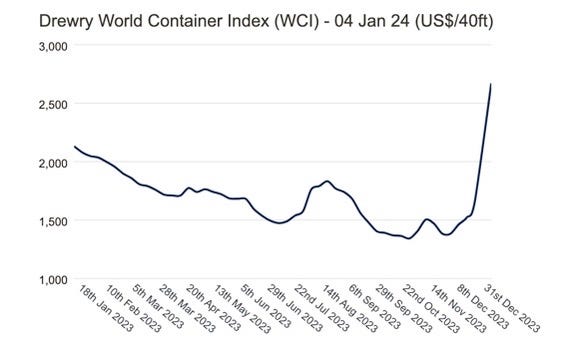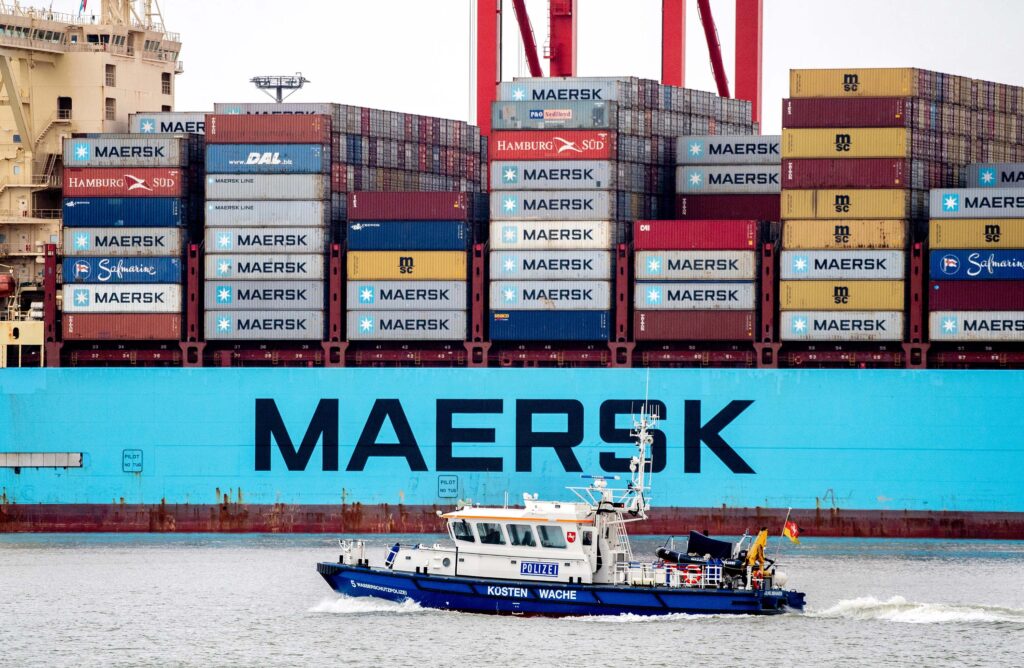- Attacks by Iran-linked rebels in the Red Sea have sent shipping costs soaring.
- An index that tracks container rates spiked 61% last week, with big companies rerouting their vessels.
- Analysts warn that the ongoing chaos could trigger a second wave of global inflation.
Inflation cooled rapidly across the world last year, but it might be a touch too early for a victory lap.
The Houthis, an Iran-aligned Yemeni militant group, have been attacking ships in the Red Sea. Analysts are warning that their strikes could lead to price pressures flaring up again as big container companies elect to reroute their vessels away from the Suez Canal.
Here's what you need to know.
Suez Canal stand-off
Since Hamas attacked Israel on October 7, the Houthis have used drones and rockets to target ships in the Red Sea in a bid to pressure Tel Aviv into a ceasefire.
Shipping companies including MSC, Maersk, and Hapag-Lloyd, as well as oil-and-gas giants such as BP, have responded to the attacks by diverting their vessels away from the Suez Canal, the waterway that connects Asia with Europe and the US.
That means container ships are sailing around Africa's Cape of Good Hope, making journey times about 40% longer, according to The New York Times.
That means it's taking much longer for everything from crude oil to TVs to sports equipment to travel from Asia to the West.
Shipping costs surge
The Houthis' attacks are already driving up big shipping companies' costs.
Drewry's World Container Index, which tracks global container rates, jumped 61% over the first week of 2024, with the maritime research consultancy attributing the spike to the ongoing chaos in the Red Sea.

Journeys from Singapore to Rotterdam in the Netherlands were most likely to be affected by the disruption, with freight costs jumping 115% to as much as $3,600 per forty-foot box.
As well as causing significant delays, the threat posed by the Houthis has forced shipping companies to pay more for marine insurance – and they could respond by upping their prices in a bid to pass higher costs onto consumers.
